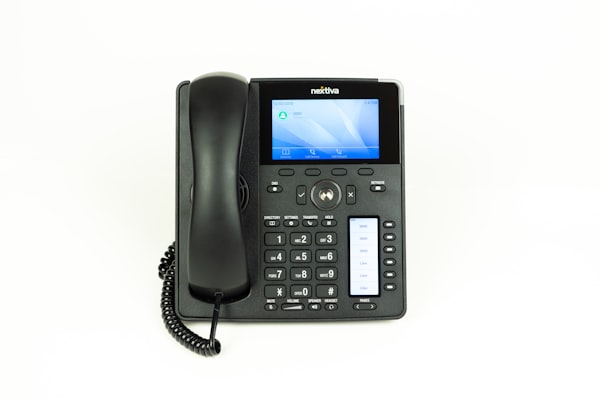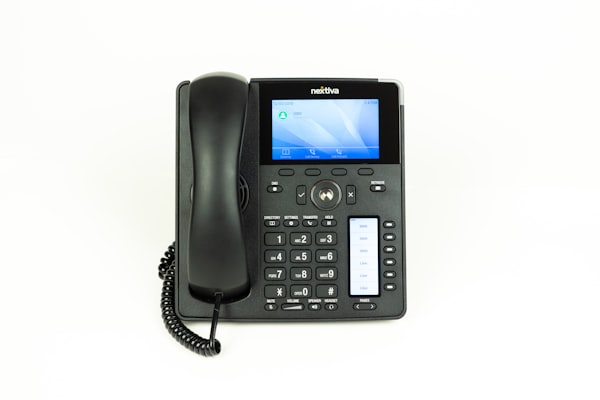Which Type of Virtual Number Should You Choose? Here Are The 3 Main Types and How They Work
Table of Content
Choosing a virtual number can seem like a daunting task. Countless options available will make you easily feel overwhelmed. But once you know what factors to consider, it's actually pretty simple: You just need to pick the most appropriate kind that fits your requirement and budget.
We’ll show how each type works (and how it affects callers) so you can establish an informed judgment about which is best for your situation.
What is actually a virtual number?
A definition of a virtual phone number is that it is not tied to any physical network and will allows you to manage an unlimited number of calls at the same time. Calls received may be logged and their performance can be evaluated in real time.
You no longer need a standard telephone connection at work since you may place and receive calls in the same way as you would with a regular phone. In order to communicate with consumers, your inbound staff and your remote or field personnel can both use the same number.
What’s the Significance in Considering a Virtual Phone System?
Your company's internal communication system has the potential to profit considerably from the application of virtual phone numbers, provided that they are used in an appropriate manner.
The internet is the medium via which these numbers are conveyed and received, and all users are linked to one another via the internet. Let's take a look at some of the ways in which the utilization of virtual numbers may prove to be advantageous to the overall operations of a firm.
Cloud-Hosted PBX System (Non-VoIP)
When you choose this type, you’re essentially leasing a phone number that is hosted on the cloud. It connects to a Voice Over IP (VoIP) system. It implies that instead of having an actual physical phone number that connects directly to your business's landline or cell phone line, you’ll receive calls through an internet connectivity and then be able to forward them to your landline or cell phone number.

VoIP-Based Virtual System
The VoIP-Based Virtual System is the most famous type of virtual number. It's also one of the most flexible, efficient, and dependable types you can get and readily available on the market today. In this article, we'll cover everything you need to know about this type of system so you can decide if it's right for your trade.
The VoIP-based virtual system uses a voice over Internet protocol (VoIP) connection between your number and your trade's location. This means that VoIP connections use IP addresses to handle all calls made through the system.
App-Based Virtual Providers
App-based virtual providers are the most flexible and useful type of virtual numbers. With the help of an app, you can communicate effectively and seamlessly in various ways:
- Call forwarding: The most common way is to use call forwarding. It implies that when someone calls your virtual number, it will ring on your phone as well as any other phones you designate. This lets you answer from whichever device is more convenient for you at the time.
- Voice over IP (VoIP): Another option is voice over IP (VoIP). With VoIP, instead of having to wait for someone else's phone to ring before answering a call on your own device, it allows you to talk straightforward using Skype or another similar service that uses VoIP technology. There are many other options available here too; some providers offer apps that make calls sound like they're coming from a landline even though they're actually being made via the internet!
- Text message alerts: If someone tries calling but doesn't get through, they'll receive an alert text message saying so instead—no need for them ever knowing anything went wrong! You'll also get notified right away when someone leaves voicemails so there won't be any chance of missing important messages if something urgent comes up while working outside business hours...
You can choose from three various types of virtual number providers
There are three main types of providers. The first is a cloud-hosted PBX, the second is a VoIP-based virtual system and the third is an app-based virtual provider.
Let's run through each one in turn:
- Cloud-hosted PBX: This type of service allows you to get a dedicated number that can be used at any time and from any location, whether it be at home or while on the go. The PBX system itself works as an extension of your business’s existing landline or cell phone system. You simply dial in using your call forwarding feature, enter your security code and then use any available extensions as if you were sitting in the office yourself!
- VoIP-based virtual system: A VoIP based service requires no hardware installation or maintenance whatsoever; everything runs via software on the cloud so there’s nothing to manage besides basic management tasks like making sure all your extensions work properly when someone dials into them from off-site locations (i.e., mobile phones).
- App based provider: With this kind of provider there are no hardware installations required whatsoever – instead everything runs through apps installed on smartphones or tablets which connect with servers over Wi-Fi networks rather than cellular connections like phones do normally for voice calls made outside their coverage area (i.e., when traveling abroad).
Functional Options That Facilitate and Improve Our Interactions With One Another
The additional perks that you can definitely enjoy after converting to a number hosting provider are, without a doubt, the most compelling argument in favor of making the transfer. The following should be included as part of a provider's standard and complimentary set of features:
- Call forwarding: allows users to forward incoming calls to alternative numbers, which can be useful when you are away and in other situations.
- Personalized greetings: Callers will hear a personalized welcome that includes details of your firm when they dial your number.
- Account Management: To ensure that you do not have any difficulties while making use of their service
- Outbound Calling: Use local caller IDs that you have obtained from your service provider to conduct outbound calls.
- Sequential Forwarding Calls: These are routed through a particular list of forwarding destinations when they are forwarded.
- Transferring calls: Transferring calls to other staff.
- Call recording: Recording calls allows for better monitoring and more thorough record-keeping.
- Extensions: for various offices and divisions around the company.
Final words
The best way to decide which type is right for you is by first deciding what you want to use it for. Do you require a toll-free number that can be reached nationwide? Or do you just want an alternate local phone number that gives your trade an extra level of credibility? Once you know the answer, then it will be easy to find a provider who provides those features at a reasonable price point.
At Telnum, we not only build business, but our goal is to build relationships with our clients and partners. For further questions, reach out to us and our Tech Specialists will assist you in every step of the way











